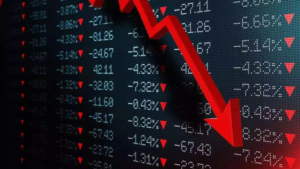Trade Actions against China
Trade actions against China refer to various measures and policies implemented by countries to address trade imbalances, intellectual property theft, and unfair trade practices attributed to China. These actions often include tariffs, import restrictions, export controls, and sanctions. The United States has been particularly active in this regard, imposing significant tariffs on Chinese goods under the Trump administration, a policy that continued with modifications under the Biden administration. The European Union, Japan, and other nations have also taken steps to counter China’s trade practices. These actions are part of a broader strategy to protect domestic industries, ensure fair competition, and address national security concerns related to technology and supply chains. However, these measures often lead to retaliatory actions from China, impacting global trade dynamics and economic relations.
In recent years, the worldwide monetary landscape has been unexpectedly more and more shaped by way of the alternate tensions among the primary economies often with China. The trade movements in opposition to China have implications for global exchange, financial stability, and global relations.
Here are some key elements of exchange actions:
- Tariffs: The most visible change movement in opposition to China changed into the imposition of tariffs on China’s goods. These tariffs sincerely tend to change practices.
- Export Controls: Another trade movement was using export controls mainly in the era sectors.
- Multilateral efforts: Beyond the bilateral moves, there have also been multilateral movements to address the exchange problems with China.
- Trade agreements: Initially exchange agreements sought to create a united front towards China’s change rules.
There are a few economic implications as nicely allow us to look into this:
- Supply Chains: The trade actions in opposition to China have profound effects on international delivery chains. Tariffs and export controls have pressured the groups to rethink their strategies which brought about shifts in the production.
- Slowdown Economic: Trade tensions have contributed to the economic slowdown in China and different international locations too by enforcing exchange motion. Uncertainty about the expenses has accelerated and purchaser spending results in slower monetary growth.
- International Trade: The exchange moves have extended shifts the world over. The nations are increasingly searching to diversify their alternate companions and reduce reliance, especially in China.
- Future Aspects: The destiny factors of alternate movements continue to be unresolved. But there could be negotiations and transient agreements. There might be a complete resolution that requires full-size policy adjustments in international change.
- Strategic Consideration: The international locations implementing alternate actions need to have balanced monetary, political, and strategic concerns at the same time as defensive domestic industries and trade practices and additionally maintain solid worldwide members of the family.
- Global Institution: The worldwide organization will play a crucial role in mediating alternate disputes and exchange practices.
For more information like this visit our official site Tradesguru.





